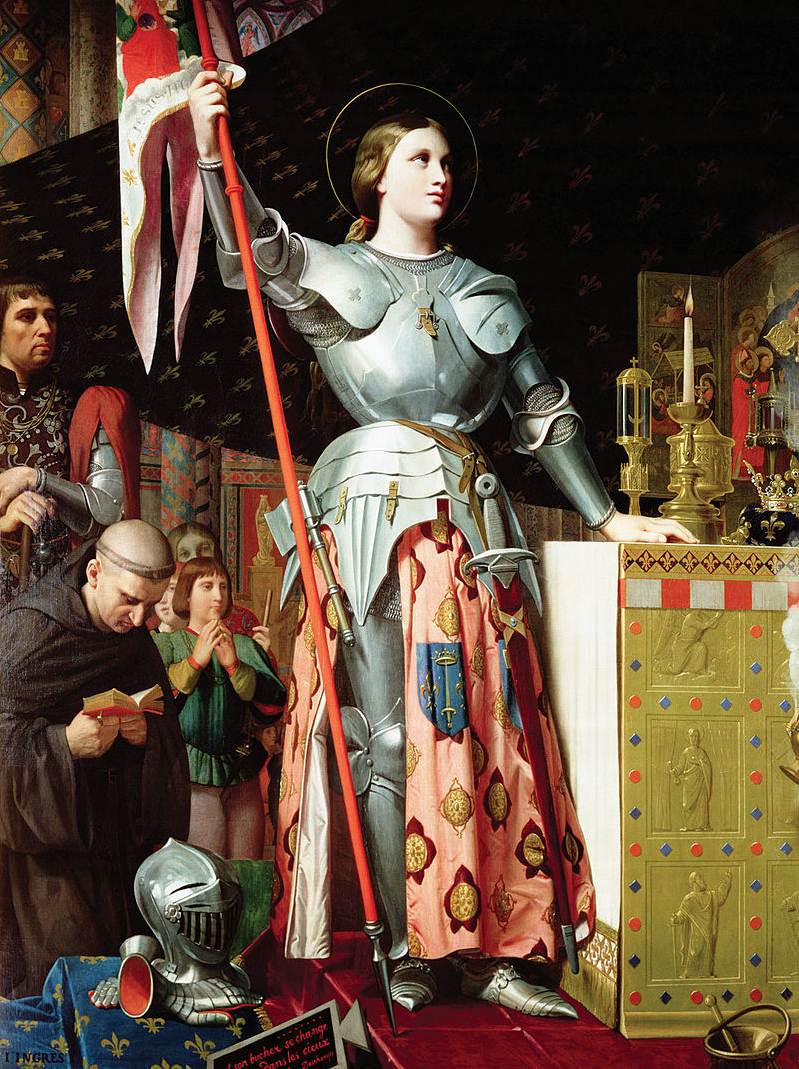
I'm sure I was only one of many who considered Joan of Arc a role model as a teenage girl. Doubtless, the young peasant girl has been a symbol of inspirations for thousands who marveled at what God executed in such a small person of little consequence. She could neither read nor write at the time of her visions, and she was the simple daughter of peasant farmers. However, she was a girl of great faith who defied the profundity of her contemporary intellectuals in complete devotion to her faith.
She wasn't always considered in such light, however. While Joan died the known-martyr's death in 1412, betrayed by her own countrymen and mishandled by the English, she was not officially canonized until 1920, almost 500 years following her death, by Pope Benedict XV at St. Peter's Basilica. May 30 was arranged Saint Joan's Feast Day as it marked the day that she was burned at the stake. Tomorrow commemorates the 605th anniversary of her death.
While Joan died at the tender age of 19, her courage and conviction transgressed the laws of denomination. Winston Churchill, a firm Protestant, spoke of the young woman as an extraordinary example of "infinite compassion" and "virtue":
"Joan was a being so uplifted from the ordinary run of mankind that she finds no equal in a thousand years. She embodied the natural goodness and valour of the human race in unexampled perfection. Unconquerable courage, infinite compassion, the virtue of the simple, the wisdom of the just, shone forth in her. She glorifies as she freed the soil from which she sprang."
At her canonization, Pope Benedict XV asserted that Joan, for her spiritual maturity despite a brief ministry of two years, belonged in the annals of history, alongside strong women of the faith who refused to leave Jesus' side during His Passion:
"We could place her next to the holy women who stayed on Calvary, close to Jesus crucified, and Mary, His mother, while the apostles fled and Peter himself denied Him three times.
Joan, the Pope recounted, trusted Gods grace explicitly and recognized a virginity not of body only, but of the soul:
"To love Him means to always obey His will. She said with total confidence and abandonment: 'I entrust myself to my Creator God, I love Him with my whole heart.'With the vow of virginity, Joan consecrated in an exclusive way her whole person to the one Love of Jesus: It is 'her promise made to our Lord to protect well her virginity of body and soul.' Virginity of soul is the state of grace, the supreme value, for her more precious than life: It was a gift of God that she received and protected with humility and trust. One of the best known texts of the first trial has to do with this: 'Asked if she knew that she was in God’s grace, she replied: ‘If I am not, may it please God to put me in it; if I am, may it please God to put me there'”
Lastly, the Pope directed to the testimony of the saint, who "invites us to a lofty level of Christian life":
"...To make prayer the guiding thread of our days; to have full confidence in fulfilling the will of God, whatever it is; to live in charity without favoritisms, without limits and having, as she had, in the love of Jesus, a profound love for the Church. Thank you."






